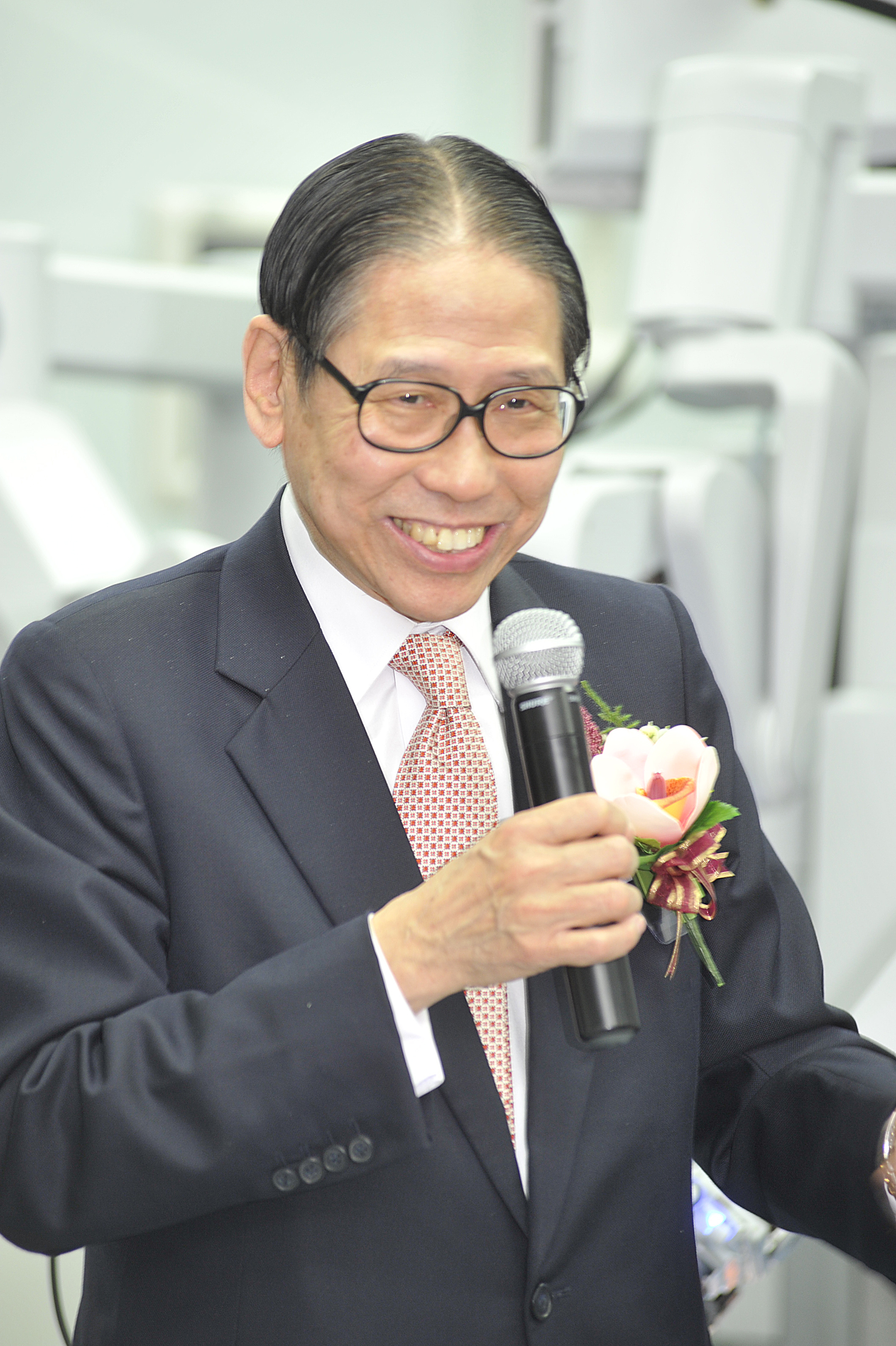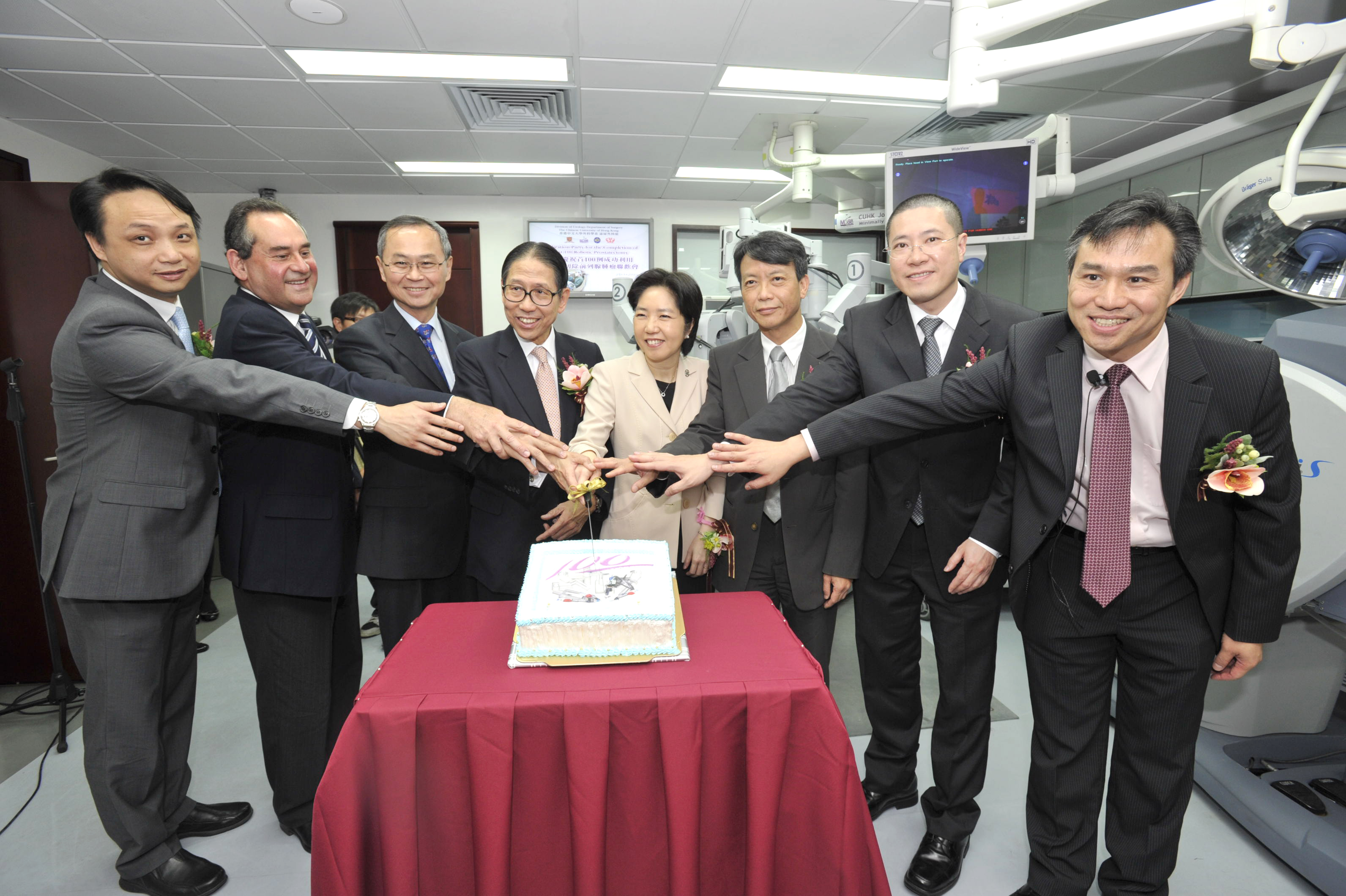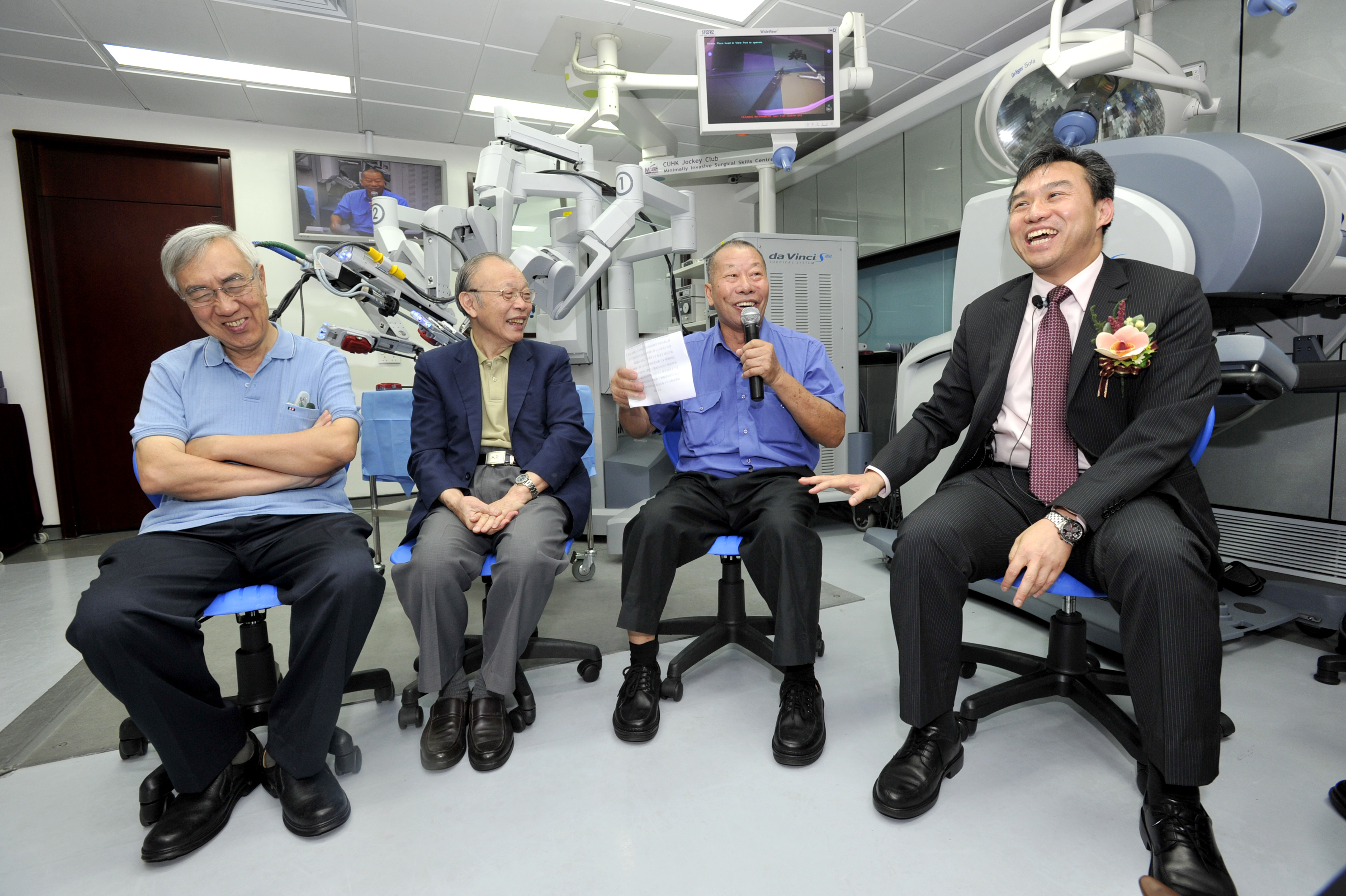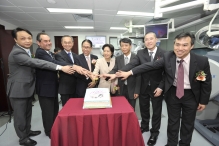CUHK
News Centre
CUHK Celebrates the First 100 Successful Cases of Robotic Prostatectomy
The Chinese University of Hong Kong (CUHK) celebrates the first 100 successful cases of robotic prostatectomy at the CUHK Jockey Club Minimally Invasive Surgical Skills Centre today (25 May). Officiating at the event were Dr. the Honourable Leong Che-hung, GBS, JP, Non-official Member of the Executive Council, HKSAR Government; Ms. Florine Tang, Manager, Charities, The Hong Kong Jockey Club; Prof. Tai-fai Fok, SBS, JP, Dean, Faculty of Medicine, CUHK; Professor Philip Kam-tao Li, Deputy Hospital Chief Executive, Prince of Wales Hospital and Prof. Andrew van Hasselt, Chairman of Executive Board, CUHK Jockey Club Minimally Invasive Surgical Skills Centre.
According to the Hong Kong Cancer Registry of the Hospital Authority, in 2007, there were 1,205 new registered cases of prostate cancer which ranked the 4th most common cancer in the male population. Upon the introduction of the robotic system in the 21st century, the minimally invasive surgical approach has gained popularity. The number of robotic radical prostatectomy operations being performed has increased dramatically in Hong Kong as in many countries.
In Hong Kong, the robotic surgery programme in urology first started at CUHK in 2005. Since then, robotic prostatectomy was routinely offered for suitable candidates at the Prince of Wales Hospital. And today, the University is celebrating its milestone of 100 cases of robotic prostatectomy.
80 patients and their relatives joined the celebration today. ‘This testifies the favourable outcome of our patients who want to share their joy to encourage others. A few of them in fact want to share their perspectives with the public. Indeed we are most thankful for our patients, who teach us how to serve with diligence and commitment, and to strive for our best. They have also entrusted us to apply the cutting edge technology to treat their underlying condition and we are glad to report the good results,’ said Prof. Sidney Kam-hung Yip, Head of Urology Division, Department of Surgery, CUHK.
A clinical study was conducted in 2008 to compare the outcomes of robotic prostatectomy and traditional open surgery. In the robotic group, the blood transfusion rate was significantly lower (5 vs 65%), the mean hospital stay was shorter (8 vs 17 days), as was the mean catheter time (12 vs 18 days). Moreover, in the robotic group (with a mean follow-up period of 6 months), continence was 95%. The same continence rate in the open group (with a mean follow-up of 42 months) was 85%.
Putting into perspectives, a transition from open to robotic-assisted surgery will be impossible unless proper training is being offered to the surgeons. The CUHK Jockey Club Minimally Invasive Surgical Skills Centre, set up with a HK$28.2 million donation from The Hong Kong Jockey Club Charities Trust, is one of the few accredited training centres in Asia to conduct robotic surgical training. In the past two years, the Centre has trained 200 surgeons on robotic surgery. It has also proctored many of its colleagues and associates to start their respective robotic programmes.
In conclusion, compared to open radical prostatectomy, robotic radical prostatectomy has markedly improved perioperative outcomes. In particular, robotic surgery entails less blood loss and shorter hospital stays, all of which facilitate early mobilisation and reduce postoperative morbidity. CUHK Faculty of Medicine envisages that robotic surgery will become common practice, and the Faculty will continue to provide its expertise to many needy patients.
(from left) Professor Enders Kwok Wai NG, Director, CUHK Jockey Club Minimally Invasive Surgical Skills Centre; Professor Charles Andrew van HASSELT, Chairman of Executive Board, CUHK Jockey Club Minimally Invasive Surgical Skills Centre; Professor Tai Fai FOK, SBS, JP, Dean, Faculty of Medicine, CUHK; Dr the Honourable LEONG Che-hung, GBS, JP, Non-official Member of the Executive Council; Ms Florine TANG, Manager, Charities, The Hong Kong Jockey Club; Professor Philip Kam Tao LI, Deputy Hospital Chief Executive, Prince of Wales Hospital; Professor Paul Bo San LAI, Chairman, Department of Surgery, CUHK and Professor Sidney Kam Hung YIP, Head of Division of Urology, Department of Surgery, CUHK host the cake-cutting ceremony









